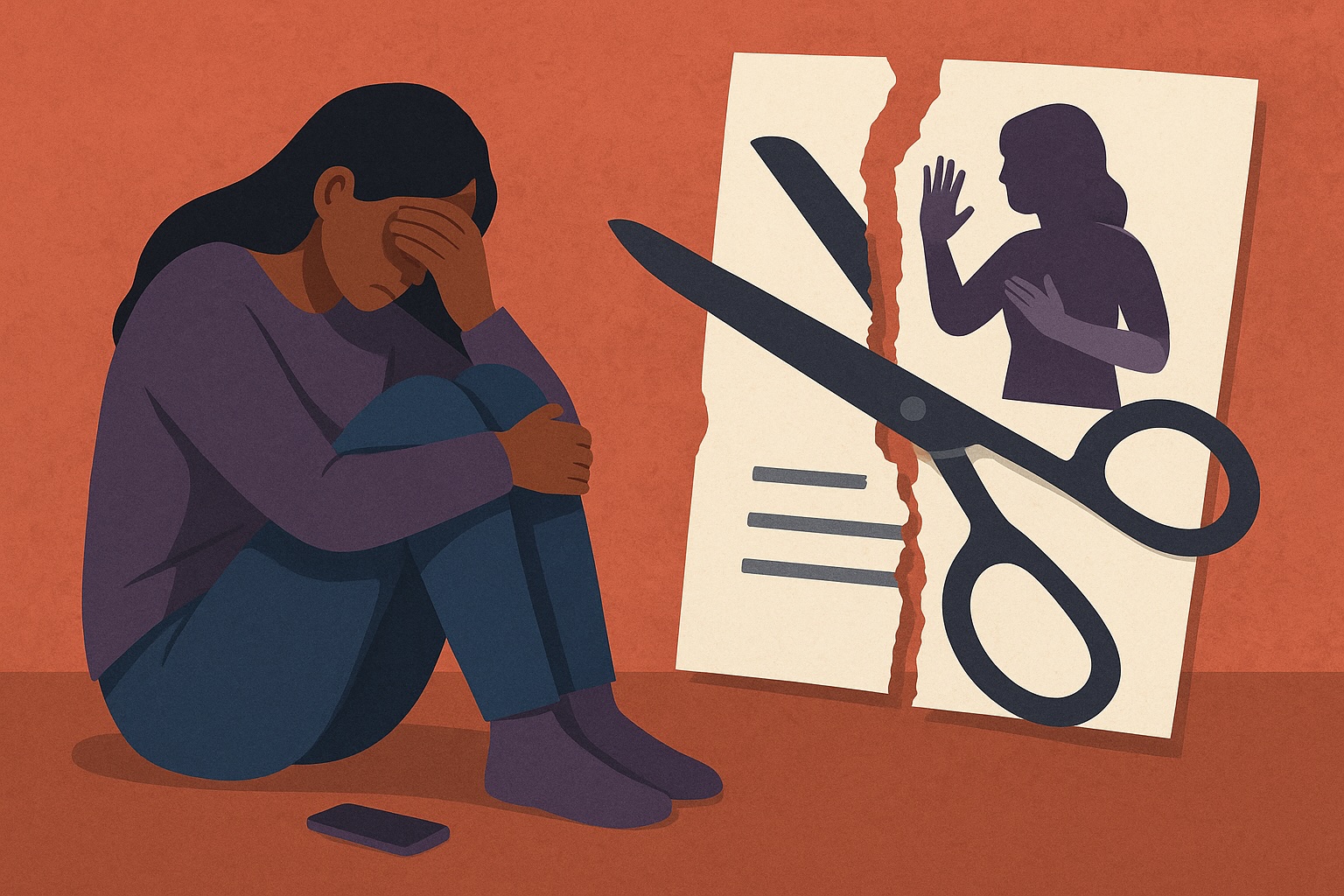NY Funding Cuts Threaten Domestic Violence Services
New York advocates warn that federal funding cuts are threatening shelters, hotlines, and survivor services, leaving thousands at risk.

Across New York, advocates are raising alarms as funding cuts threaten to dismantle critical victim services — including domestic violence shelters, crisis hotlines, and survivor advocacy programs. With demand for support rising, providers warn that without urgent action, survivors may be left with impossible choices: remain with their abusers or face homelessness.
💰 The Scope of the Cuts
At the center of the crisis are reductions to the Victims of Crime Act (VOCA) — a federal funding source that supports victim services nationwide.
VOCA grants cut nationally: Federal funding has dropped significantly due to declining deposits into the Crime Victims Fund.
New York’s reliance: Domestic violence programs across the state depend heavily on VOCA to operate shelters, hotlines, and advocacy services.
Direct consequences: Programs face staff layoffs, fewer shelter beds, and reduced counseling capacity.
Without replacement funding, many local providers warn they may be forced to shut their doors.
🆘 Impact on Survivors
The funding cuts aren’t just numbers on a spreadsheet — they directly affect the safety and survival of victims of domestic violence and other crimes.
📞 Hotlines: Longer wait times, meaning survivors in crisis may not reach help immediately.
🛏️ Shelters: Fewer emergency beds available, leaving survivors without safe housing.
⚖️ Legal advocacy: Reduced representation in family and criminal courts, leaving survivors vulnerable in custody or protection order cases.
💔 Counseling services: Cutbacks to trauma-informed therapy, leaving fewer healing resources for survivors and their children.
For many survivors, these services are the only lifeline standing between safety and ongoing abuse.
👥 Community Response
Coalitions of advocates, survivor-led organizations, and service providers are mobilizing across New York to demand action.
Lobbying Albany: State lawmakers are being urged to provide emergency funding to offset VOCA cuts.
Survivor voices: Grassroots organizations stress that cuts come at the worst possible time, with intimate partner violence (IPV) reports rising post-pandemic.
Coalition messaging: The central call to action is clear: funding cuts are not just budgetary issues — they are life-and-death issues.
⚠️ The Bigger Picture
Without intervention, New York risks:
Reversing decades of progress in survivor protection and advocacy.
Increasing risks of homelessness, injury, and homicide for victims of abuse.
Weakening the safety net that communities rely on during times of crisis.
As advocates point out, cutting funds now could undo years of investment in building a more compassionate, survivor-centered response system.
❓ Frequently Asked Questions (FAQ)
1. What is VOCA funding?
VOCA (Victims of Crime Act) funding comes from federal criminal fines and penalties, distributed as grants to support victim services such as shelters, hotlines, and legal advocacy.
2. Why is New York impacted?
New York relies heavily on VOCA grants to sustain domestic violence shelters and crisis response programs. Reductions at the federal level leave the state especially vulnerable.
3. How do funding cuts affect survivors?
Cuts lead to fewer beds in shelters, staff layoffs, longer hotline wait times, and reduced access to legal aid and counseling — all of which directly impact survivor safety.
4. What’s being done to address this?
Advocates are pressuring Albany lawmakers to provide emergency state funding to fill the gap left by VOCA reductions.
5. Why is this happening now?
The cuts coincide with post-pandemic increases in domestic violence, making the timing particularly dangerous for survivors seeking help.
✅ Key Takeaways
VOCA funding cuts are threatening New York’s domestic violence services, from shelters to hotlines.
Survivors may face longer waits, fewer safe housing options, and reduced access to legal or counseling support.
Advocates are lobbying for emergency state funding to prevent a collapse of the system.
Without action, survivors could be forced into life-threatening situations, undoing decades of progress in victim advocacy.
